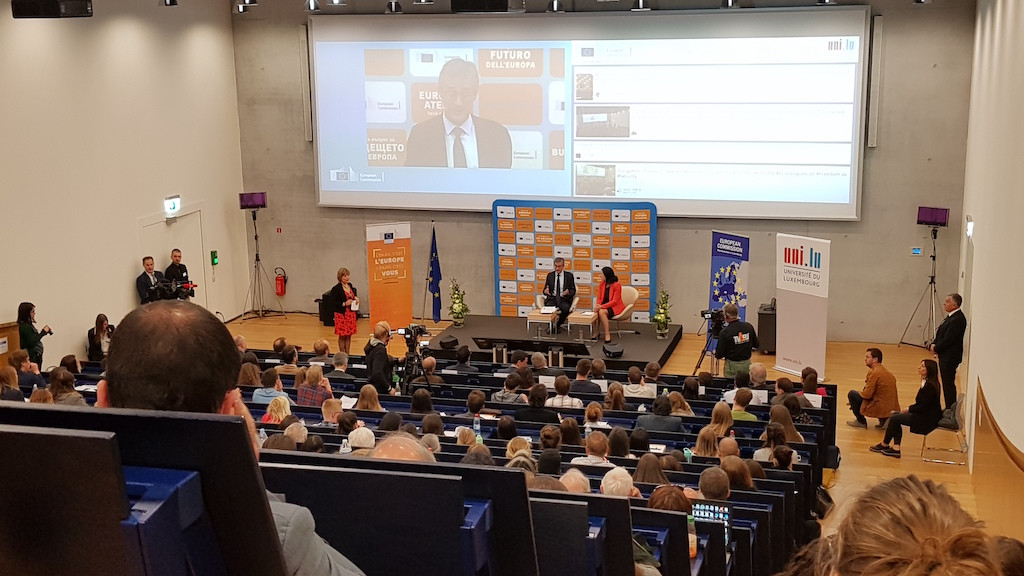Terrorism, organized crime, cybercrime, illegal online hate speech and the spread of misinformation. The ubiquitous nature of the Internet raises the question of whether we should sometimes limit our freedoms to ensure our security. Vera Jourován, European Commissioner for justice, consumers and gender equality, and Felix Braz, Luxembourg’s minister of justice, were at the University of Luxembourg to answer questions on European cooperation and coordination on justice and security, and on the place of the citizen in a complex world. In a crowded auditorium, concerned students, members of the public and Twitter users asked questions in turn to both guests on a number of topics, including the general data protection regulation, Brexit, freedom of expression and diversity.
“We see now with the Facebook scandal, it can be massive because it affected 2.7 million Europeans,” Jourován said. “That’s why we came up with data protection. We have a lot of complaints from the consumers. People give up, they feel cheated, and they give up because it is costly, and it doesn’t have certain results. Why do we have such high rights for consumers if they are not properly enforced?”. When asked how people can make sure their data will not be sold by public and private entities, she explained that, “if the legislation is respected by all the actors, it should not happen because the core thing in GDPR is you must keep your privacy and private data under control.” She also mentioned that people should be able to get their data back when they would like to.
Addressing the regulation of hate speech, Braz explained asked “where is your freedom of expression if you are afraid to say what you think and what you really believe because people are bullying you online, because they hate you? Attacking hate speech is not censorship, it’s not against freedom of expression, but it’s about defending everybody’s freedom of expression.” Jourován added that one way to prevent online propaganda is to teach critical thinking in order to discern “what dirty game is played online.” Citing the Brexit referendum result, she said: “I think the British people have the right to understand what happened to them and rather that they have been manipulated.”
When Braz was personally asked if the diversity of the Luxembourg population is a model for Europe he answered positively. “Europe is not about being the same all the time, Europe is definitely about diversity.” Braz also mentioned that diversity has its challenges, including political participation and voting. “We still have progress to make, but it’s definitely quite a symbol how Luxembourg has managed to have a positive evolution for decades now.”
The conference ended with a last question regarding the future of the EU without Britain, and the sharing of data with the UK. “If there is exchange of information, what are the rules that we will apply?” Braz asked. “I can’t imagine that we can negotiate data regulation rules [GDPR] that will apply a month from now…that we will renegotiate them with our British friends. That’s not possible.” He said that the UK needs to understand that the GDPR rules will also have to be applied to the relation that the EU will have with it post-Brexit. Jourován added that despite Brexit, the UK and the EU face the same enemies. “We have to fight together. The Brits have always been strong allies for efficient and proportionate solutions.”
